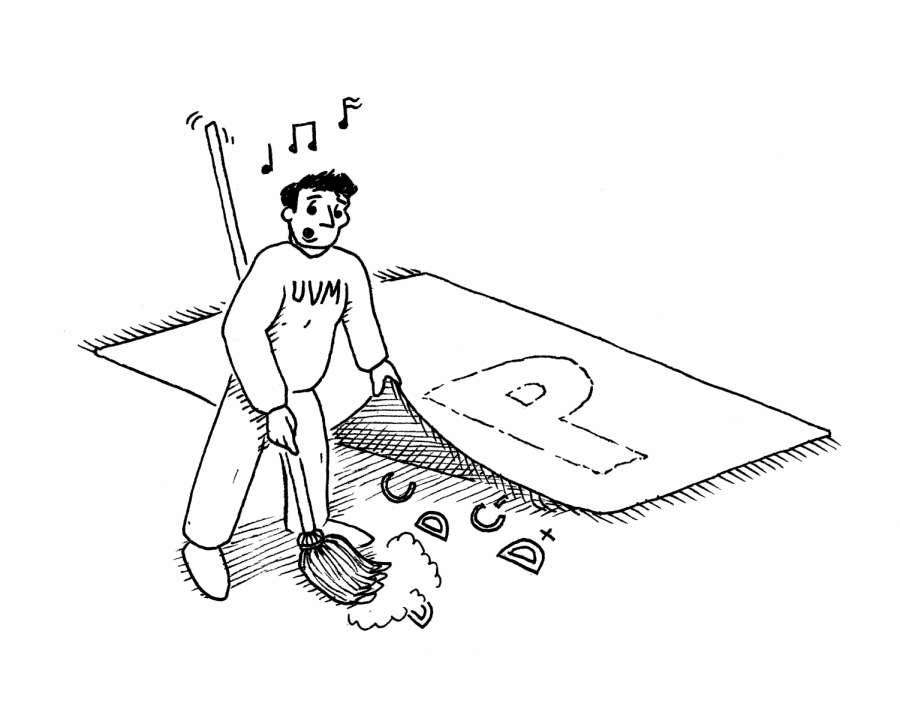UVM allowing a pass/fail option is the ethical choice
April 10, 2020
While moving classes online was a necessary step for the safety of our student body, online classes are not the ideal learning environment.
There is a reason that students at UVM are attending college in-person: the real-life classroom experience is incredibly valuable.
The University of Vermont began remote learning on March 17 amidst a nationwide closing of colleges in an attempt to slow the spread of the new coronavirus in the US.
Senior Courtney Brady started a Change.org petition asking the University to allow a pass/fail option for students this semester. A pass/fail option has been implemented at other American universities such as Georgetown and Northwestern, according to the petition.
The idea seems to have struck a chord with the UVM community. As of March 31, the petition had over 3,300 signatures and counting.
On March 23, Senior Vice President and Provost Patricia Prelock emailed students saying that the University was aware of students wanting a pass/fail option, but that the university would stick with letter grades.
“We are dedicated to developing mechanisms to accurately assess your knowledge and skills as well as supporting your success,” Prelock said in the email. “I know you will bring your ‘can-do’ attitude to your experience.”
On March 27, Prelock emailed students again, notifying students that the university had reconsidered and would be awarding letter grades, but would give students an option to elect pass/fail until May 14.
I don’t think a pass/fail option is a perfect solution: the real loss that students face is not their GPA but the loss of in-class discussions and experiences. These are real-life learning experiences which cannot be recreated online.
A pass/fail option acknowledges that the University recognizes this deficit that students are facing.
Many students’ potential cannot be realized in online coursework. Some students, such as music majors, are missing out on recitals and live performances. Others thrive in a classroom setting and have a hard time working from home.
In addition, many students will struggle to complete coursework without access to UVM facilities such as libraries and science labs.
Adjusting to online formats, unsteady internet access, unstable home life and a lack of access to UVM facilities are just a few of the many factors that could negatively affect students’ ability to maintain high GPAs. Students’ academic records should not suffer because of factors entirely out of their control.
It is impossible for many students to complete work of the same quality at home that they would on campus. To force students to be graded according to the same standards as if courses had been on campus the entire semester is simply unfair to those who will struggle to reach their potential under these conditions.
I am glad that the university is allowing students to choose a pass/fail option. However, I feel that university officials could have been more proactive about this decision.
Students should not be put in the position of protesting their university to get accommodations during these unprecedented times.
“I want to reiterate the need for empathy and understanding,” UVM President Suresh Garimella said in a March 23 email to the UVM student body. “We have an amazing community that exemplifies the very things needed for us to overcome this challenge in a way that not only preserves our values, but also strengthens them.”
I agree with President Garimella– this is a time in which our community requires empathy and understanding. And I believe that the implementation of a pass/fail option for students during this difficult semester was the compassionate choice for the university to make.







